A New Face for
the ‘Wild Kingdom’
UC Santa Barbara Researcher
Dr. Rae Wynn-Grant Brings a Passion
for Animal Conservation to
Classic TV Show Reboot
By Leslie Dinaberg | October 5, 2023
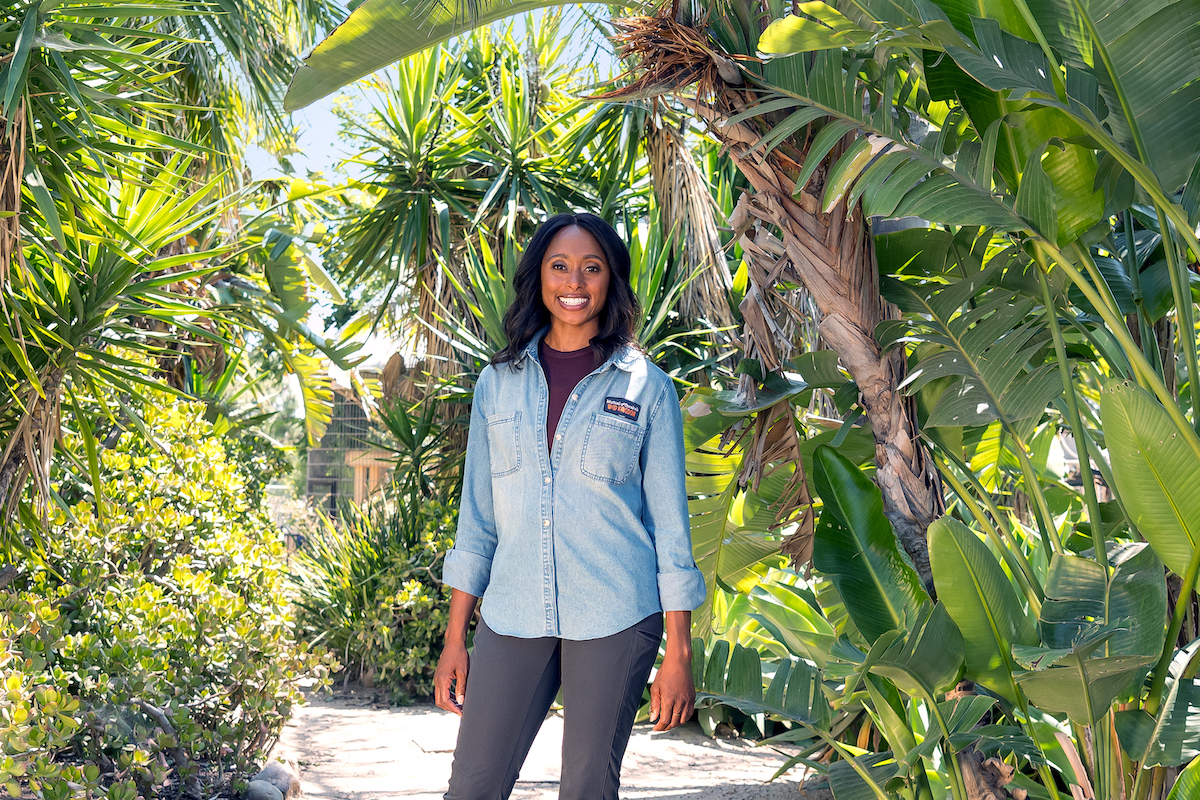
Wild Kingdom is set to roar again, 60 years after its original debut, with UCSB’s Bren School of Environmental Science and Management researcher and wildlife ecologist Dr. Rae Wynn-Grant hosting the OG animal adventure series this time around!
Wild Kingdom Protecting the Wild premieres on NBC on Saturday, October 7, and it’s still sponsored by Mutual of Omaha, the historic Fortune 500 company that has been supporting the show since it pioneered the nature-adventure genre when it premiered back in 1963. Wynn-Grant co-hosts the new show with veteran wildlife expert and former host of the original Wild Kingdom series Peter Gros. The core of the program remains the same, as Gros states, “We’re continuing to inspire a generation of people to commit to helping protect the natural world.”
A native of California who resides in Santa Barbara with her husband and two young daughters when she’s not traveling around the world — her research on how human activity influences the behavior of wild animals and media work have taken her to six of seven continents and more than 25 countries — Wynn-Grant is also passionate about science communication and using her media exposure to increase representation of Black scientists and explorers.
The creator and host of award-winning PBS podcast Going Wild with Dr. Rae Wynn-Grant, as well as a research fellow with the National Geographic Society, Wynn-Grant attributes her interest in wildlife and conservation to the nature shows she watched on television as a child, including Wild Kingdom. She graciously took time out of her incredibly busy schedule to tell us a bit about her passions and pursuits.
It must be very hectic right now trying to get all the publicity done at the same time you’re shooting Wild Kingdom. Oh my goodness, it is. But it’s been really fun and kind of mind-blowing with how much I’ve learned, even scientifically…. And it has been so busy. I landed at the airport at 2:15 a.m., so it’s been a wild ride or wild kingdom. But I’m really grateful to be speaking with you. I’m sitting in my office at the Bren School at UCSB; it’s actually kind of perfect.

Where have you been; have you been traveling all over the place? How does it work with filming a show like this? Every episode is in the wilderness in some interesting location. We started filming in June, so it’s been a summer of filming. … We’ve done several places in California, from the Mojave Desert to the Channel Islands to Fort Bragg up in Northern California, [and] kelp forests. We’ve been to Texas and Missouri and Maine. We’re headed to Florida and Montana; we were in the San Juan Islands … everywhere you can imagine; we’re heading to Alaska. We are hitting hotspots of biodiversity with incredible stories of wildlife conservation all over the world.
I think season one will probably take through the spring to film. As the show is airing, we’ll be building more.
I take it you like to travel? I do. I don’t know if I’ve been asked that question…. I travel so much for work. And I always have even before I started hosting the show; I’ve always been a fairly urban person who studies wildlife and some of the deepest parts of the wilderness. There was about a decade where my research was in East Central Africa, so travel was essential, even though I lived in New York City. It’s always been a consistent part of my work.
How long are you in Santa Barbara this time around? I think it will be here for about four days. I have children, and the first day of school for my oldest is on Tuesday. One of my priorities was making sure the schedule worked around the first day of school. … I have two daughters: an 8-year-old daughter and an almost-3-year-old daughter.
You’re very busy. Very busy. I would argue that my husband is even busier. He’s a stay-at-home dad. He’s a consistent parent, and that allows me to be super inconsistent. He definitely has his hands full, especially this summer.
I know you grew up watching the show, but do your daughters have any idea about what Wild Kingdom is and what’s going to happen when people see it? My youngest definitely doesn’t. She understands that Mommy travels for work. She’s developing this understanding that when Mommy has to work, she usually flies away. But she doesn’t really know that I work with wild animals and that kind of thing. Whereas my 8-year-old is certainly old enough now to understand what I do, and she is wrapping her head around the fact that it’s a TV show now.
It’s been 20 years now that I’ve been a wildlife ecologist in some capacity, as a student, if not a practitioner. So her whole life, I have traveled, mostly to Africa, but different parts of the world to study wild animals. So that’s normalized for her.
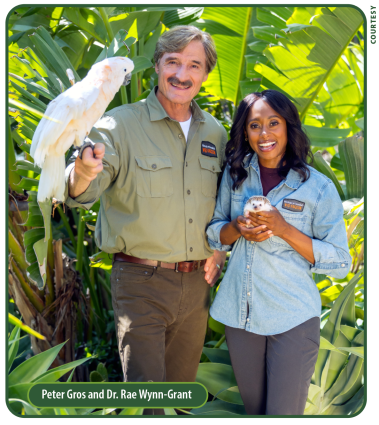
I really am excited that Wild Kingdom is a family show. … There might be some content that’s a little advanced for kids that young, because it’s scientific concepts, but it should be accessible. So that makes me feel really, really fortunate that I am in that age of parenting where the content that I’m a part of making is relevant.
When I was a kid, I used to say, “I want to be a nature show host when I grow up.”
Really? Wow. That’s what I wanted. I didn’t realize there was a science behind what the nature shows were showing, I just thought, “Wow, this is the best thing I’ve ever seen. These people are living the dream.” And that’s what I want to do.
When I got to college, my freshman year, first week of school, my advisor asked, “What would you like to be? What do you want to major in?” and I said, “Whatever major can help me be a nature show host is what I want to do.”
And that’s how you got to environmental science. I’d never heard of it, and that was when I realized there’s a science to learning about wild animals and protecting wild animals. When I learned that there’s a science to it, it became even more purposeful. For a while, I was like, “Oh, well, I may never be a nature show host, but I can do everything that nature show hosts do, just without the cameras there. I can be in the wild. I can learn about these animals. I can do the science to figure out how to protect them and to keep them alive. And that’s what I’ve been doing for 20 years, until this summer, my childhood dream came true. And I’ve had the opportunity to host the nature show that inspired all of us. It’s really incredible.
I am not a very religious person at all. But this experience has really been so profound. And kind of surreal. … In particular, for someone who’s so non-traditional in this space, sometimes I really can’t believe it.
There are not that many women, still, that are super visible in science, and certainly not that many Black women. Do you feel added pressure? Is that part of your thinking at all? Oh, absolutely. In very positive, motivating ways. And then also in fairly crushing ways. There are low numbers of Black women in science. There are low numbers of women in science overall, but pretty good in leadership positions. So I feel very grateful to have the opportunity to be a public figure so that the representation is visible.
When you can see someone thriving in that environment, who is non-traditional in that space, representation can go very, very far. I remember having feelings as a kid that, although I wanted to be a nature show host, obviously, I never will be because there’s only one person who’s a nature show host. And that’s like a British or Australian white guy. And that’s not fair.
I don’t want anyone else to ever have those thoughts about anything.
In a lot of ways, knowing that there are so many barriers for all kinds of people, but in particular people from my demographic and young Black women to be powerful and influential in the environmental space, it motivates me to keep doing science media, so that at a minimum, it can be visible.
That’s not the end; you can’t have a Black woman in a major show and say, “Okay, the work is done.” But it is really, really important, and then at the same time, it makes my work very, very hard. Being a Black woman in general, just existing as a Black woman, can be exhausting and crushing and a constant fight — combine that with a professional field that is also a constant fight, that is also in crisis, that is also facing a lot of resistance, and is also at this kind of critical, kind of terrifying moment is a double whammy.
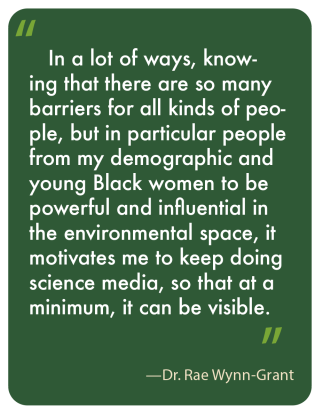
So to be fighting for the science to move forward, at the same time as fighting for my community to be protected, it can often feel like far too much. And a lot of my colleagues don’t have that experience — they don’t worry about getting shot on the way home after work, they don’t worry about their children being bullied in certain environments, and that kind of thing. So, there is an isolation, there is a difficulty, and sometimes it gets the best of me.
Most of the time, I’m able to really use that energy to turn it back on my science community … To fight for the environment also means to fight for humans and human wellness, because if we want a healthy, thriving planet, that means we need all kinds of people to participate in coming up with a solution and to be helping the environment. And it’s impossible for all kinds of people to help the environment if they’re dealing with oppression in their own communities.
So if we want the planet to be healthy and thriving, that means we have to make sure that every community, every demographic of people, whether it’s class, or females, or immigrants, or religious minorities, whatever it is, that they are safe, and they have resources, and they are well, and then we’ll get the best, brightest thinkers working together.
When you work for the environment, when you work for the planet, when Mother Nature is your boss, even if it’s in the context of media, there is this gift of having the view that the planet is everything and everyone, right, and nature is everything and everyone and we can’t compartmentalize nature protecting nature. We are nature, we are part of this, we’re part of the problems and the solutions, and, you know, balance is actually something that every single aspect of this planet is looking for.
Can you give us a little bit of a teaser on what some of the animals are that we’re gonna see on Wild Kingdom? I will let your imagination run wild. You will see whales; you will see sea turtles; you will see bears; you’ll see mountain lions. And you’ll also see a giant salamander, and you’ll see really cool insects and some marine invertebrates that you never would have dreamed are as cool as they are. So it is such a diverse group of wildlife that we’re working with. And that is another blessing, that the show has offered me to do a deep dive into opening up a world of biodiversity to me, that it’s just been fascinating.
How does your work at the Bren School fit in with this? I appreciate you asking. I am trying to figure it out. I will say, working on this show is not full-time. This summer, it has certainly been even more than beyond full-time. But in general, I’m probably filming about half of the time. I have two full-time jobs. One is hosting Wild Kingdom and the other is being a research faculty member at the Bren School. I’m on a mountain lion project at the Jack and Laura Dangermond Preserve. And actually, the Santa Barbara Independent did a great cover story of our work last year. So I am just very, very fortunate to do the mountain lion work there. And I work with graduate students from UCSB and different faculty members here, and we’re collecting really novel, fascinating data on what mountain lions are doing up there.
So the simplest way I can say it is that when I’m not filming, I’m right here in my office at UCSB, or I’m at my field site at the Dangermond or working with my team, trying to make some really cool discoveries about what’s going on with wild animals locally here in Santa Barbara County.
For more information about Dr. Rae Wynn-Grant and her work, see raewynngrant.com. For more information on how to watch Wild Kingdom, see mutualofomaha.com/wild-kingdom/new-episodes.

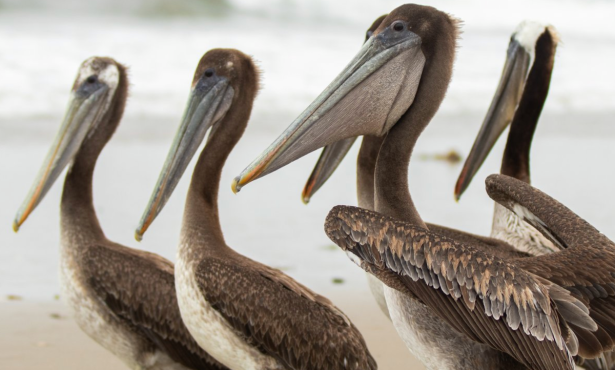
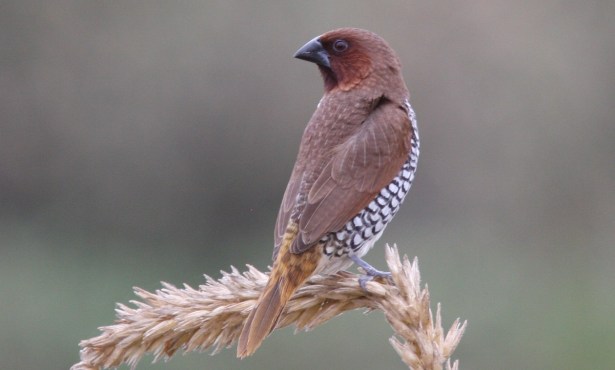
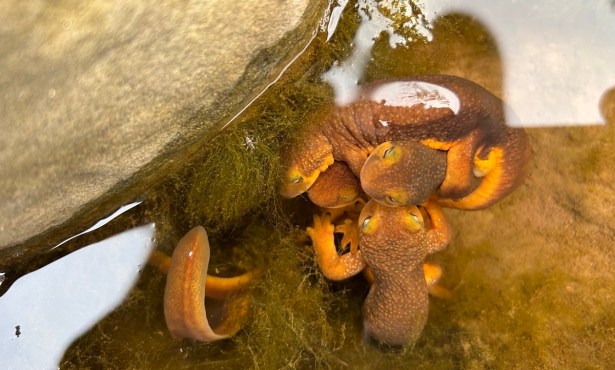
You must be logged in to post a comment.